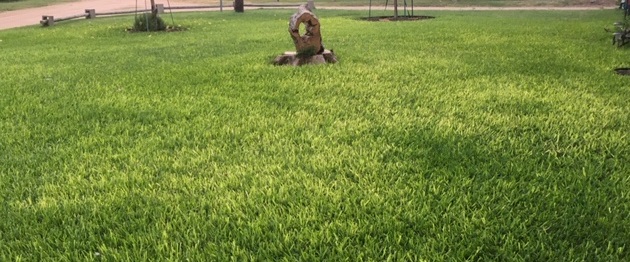Many of you are concerned about your lawns right now, as large brown areas are starting to show up as the summer heats up. I would encourage all of you to do an irrigation audit first, to determine if it is water-related. Never “assume” that all is being watered equally. Instructions for an easy, DIY irrigation audit can be found HERE.
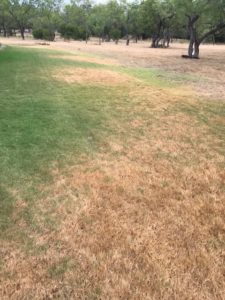
There are certain lawn issues that show up at specific times of the year, and there are specific times to treat them. For instance, we only see chinch bugs in the hottest part of the summer, (like NOW) and usually in the hottest part of the yard- next to roads, driveways and sidewalks. Find out if you have chinch bugs and how to control them HERE.
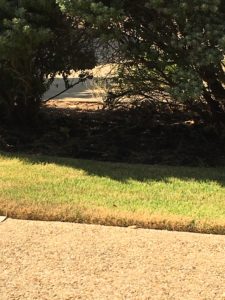
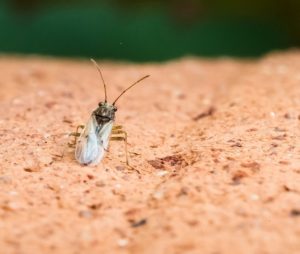
If you notice a yellowing of your lawn followed by browning, it is possible that you have a disease called “take-all-patch”. Take-all-patch disease has been spreading all winter and spring, killing roots and weakening turf. Finally, when it gets hot, the grass runners and leaves die as well. This fungus spreads in an irregular pattern, and is controlled by improving cultural methods such as not using high-nitrogen fertilizers or weed and feed, avoiding frequent, shallow watering, and removing any thatch build-up, as this is the layer in which it spreads in the winter. Take-all-patch is diagnosed by sending a sample to Texas Plant Disease Diagnostic Lab. Read more about treating Take-all-patch HERE.
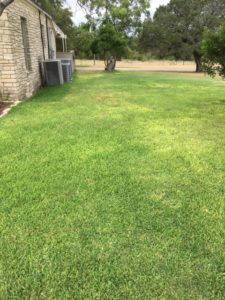
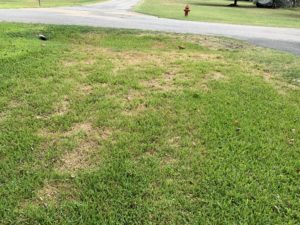
Grubs are another issue that might show up in the summer. Many people assume that they have grubs because armadillos dig in their yard, and they treat with a pesticide whether they really have them or even if it is the right time of year to treat them or not. Armadillos will dig up any area that is irrigated due to the dry conditions elsewhere, and they will also go after other insects or earthworms. Applying pesticides at the wrong time of year will not control the grubs, and will harm the beneficial insects and earthworms which our lawns need to stay healthy. Read about when and how to control grubs HERE.
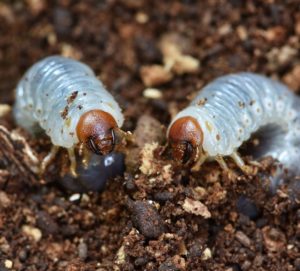
We have a few other diseases that might show up in the summer on certain lawn grasses. Bring a sample in a plastic bag, with photos of the affected area to the nursery, and we will help identify the problem and help find a solution.

